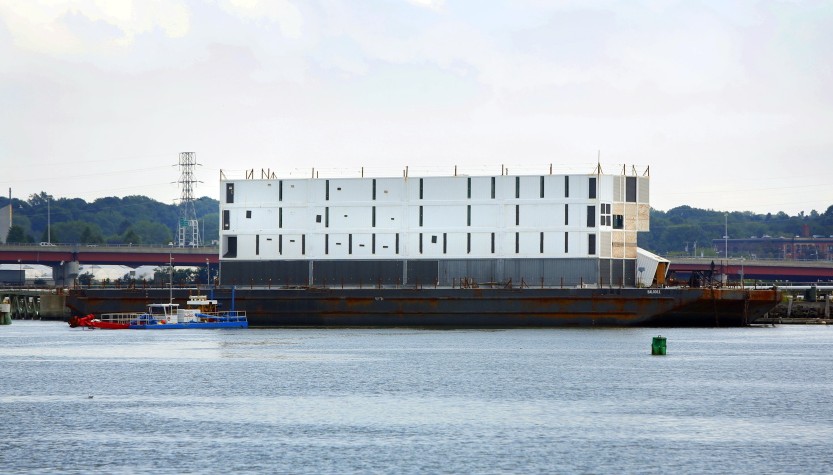Remember the mystery Google barges? Portland’s barge is no more, it seems.
Toward the end of last year, the tech world was abuzz with curiosity about why Google had anchored barges in Portland, Maine and San Francisco. Floating data centers? Secret projects?
The search giant finally clued us in: the company was planning to use the barges as interactive spaces to teach people about Google technology.
But now, according to a report from the Portland Press Herald, the Google barge sitting in Portland’s Harbor has been sold. It will be disassembled and scrapped, after being bought by an international barging company of some sort.
The barge had previously carried 63 shipping containers arranged to form a four-story building where Google was planning to host a technology exhibit. The report also notes that a company called Cianbro Corp. had been scheduled to do interior work on the barge, which was to include the installation of undisclosed “technology equipment.” But that work was never done.
Afterward, the barge was going to be towed to New York, where presumably Google would open the doors to its floating showroom, or perhaps, its “Google Glass party boat.”
A previous story from CBS KPIX said the barges were meant to be luxury spaces with a deck up top for socializing. The idea, that article claimed, is that Google would use these barges as high-end showrooms to market various Google gadgets, including Google Glass, to an invite-only crowd.
Given Glass’s somewhat lackluster reception so far, perhaps Google decided to scale back its plans for showing off Glass – at least in this way. Glass today is already facing a perception problem of being associated with a richer, even elite, tech crowd that’s bringing about a host of changes in San Francisco where luxury buses roam the town, gentrification abounds, and landlords evict the city’s longtime residents in order to charge higher rents.
Hawking Glass via private events on mysterious boats wouldn’t help Google change Glass’s image as the latest toy for tech’s 1% instead of an early-stage wearable computing prototype that could eventually lead to smart contact lenses with glucose monitors and tiny cameras.
Image credit: Portland Press Herald






























Comment